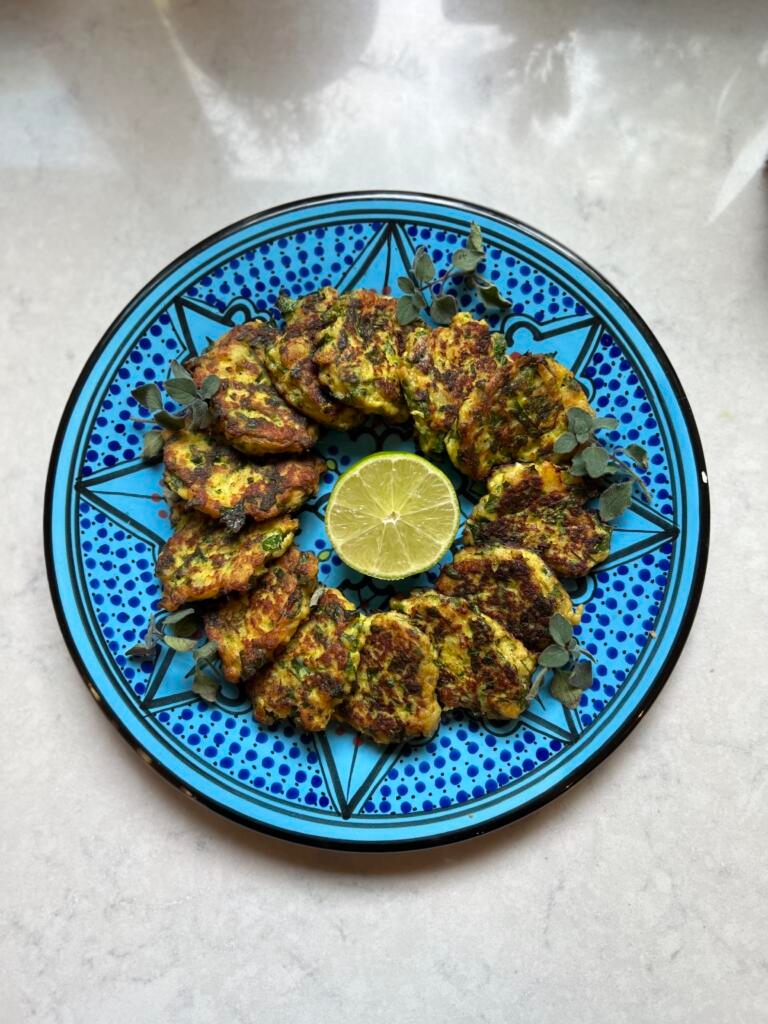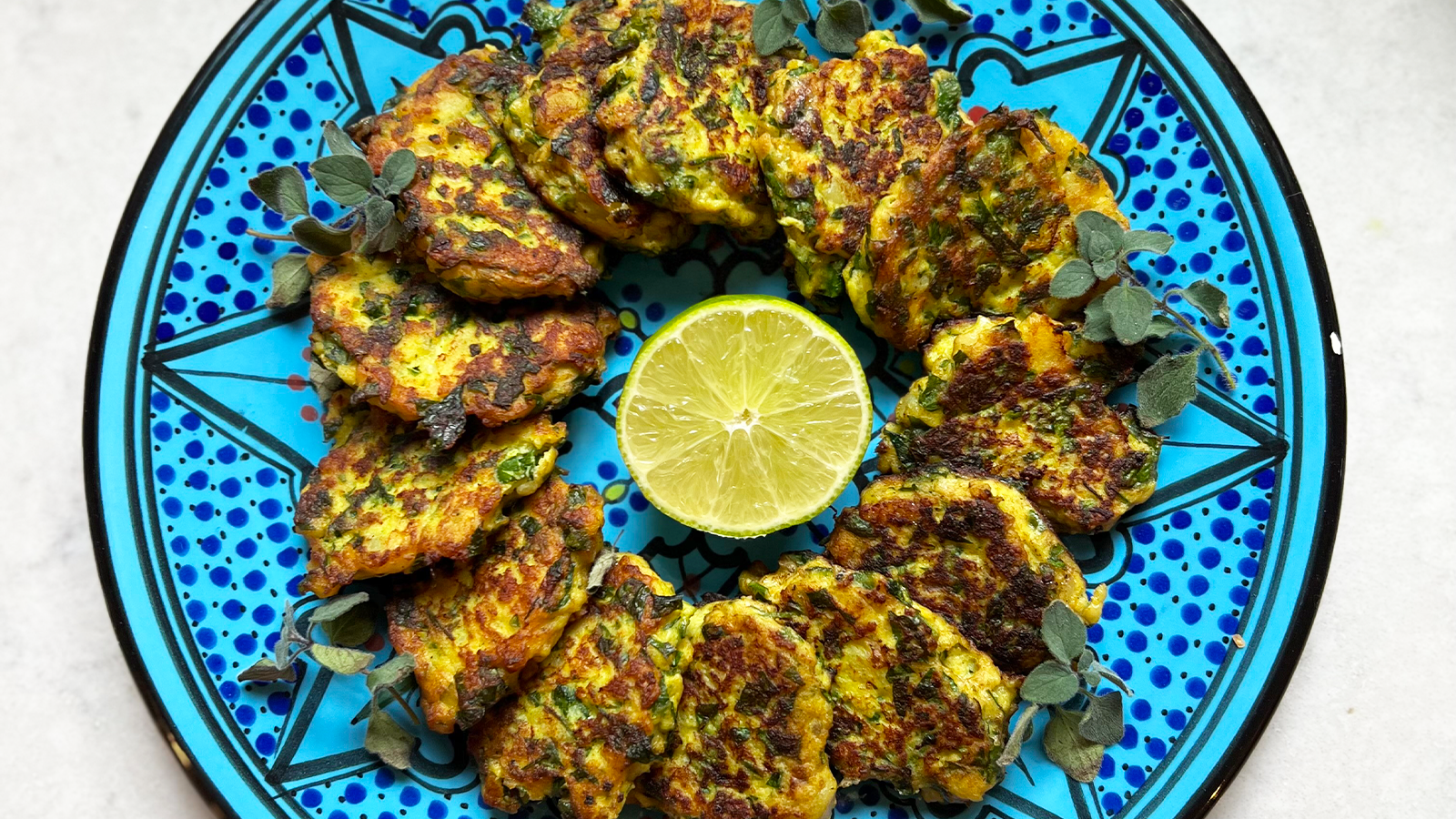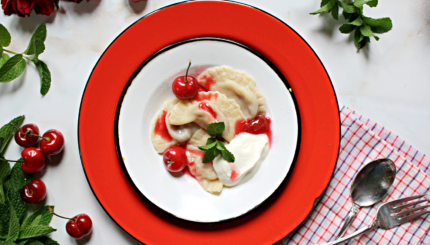My Grandmother Rachel’s Friday lunch spread served as a magnet for the whole family. On the small formica table in her kitchen you could find all the classics of Iraqi Jewish cuisine: a plate of thin, dark, fried slices of eggplant; a large bowl of freshly chopped Israeli salad with a lot of lemon juice and black pepper; a jar of pickled turnips; hard-boiled eggs; and a glass plate filled with fried chicken, herb and onion patties.
Those were the appetizers.
Kubbeh soups, stuffed onions and tomatoes, and rice with vermicelli noodles followed.
I did not know at the time, but those chicken and herb patties called aruk (or uruk) are Iraqi staples that can be found in many Jewish Iraqi homes in Israel and elsewhere. Some make a vegetarian version, adding more potato and omitting the chicken.
The Nosher celebrates the traditions and recipes that have brought Jews together for centuries. Donate today to keep The Nosher's stories and recipes accessible to all.
I’m fascinated by how many dishes my grandmother could make out of one chicken. She’d start the day at around 5 a.m. making chicken broth with a few cuts of the chicken. Then she would use that broth to cook the rice with toasted vermicelli noodles and for the kubbeh sauce. No wonder it was so good.
Sometimes my grandmother would use the chicken skin, with only the wings still attached, for t’beet, an Iraqi Shabbat stew. She stuffed the skin with rice mixed with chicken innards, placed it in a large pot, covered it with more rice, and placed a few whole eggs on top. The t’beet was then cooked overnight and served for lunch on Shabbat.
And then she’d grind the chicken breast to make the aruk.
Similar fritters are popular around the Middle East. Ejeh is a type of omelet from the Levant made with eggs and a lot of parsley and mint; kuku sabzi is an Iranian green frittata that’s filled with chopped herbs, like parsley, cilantro, dill and fenugreek; Moroccan maakouda are potato fritters made with turmeric that are sold as street food in the markets.
Today, “aruk” is the most common name for chicken patties among Iraqi Israeli Jews. However, I found few mentions of aruk in earlier Iraqi cookbooks, and I suspect the word may have previously been a catch-all term for fritters, or even for kubbeh.
There’s an interesting recipe for “uruk,” for instance, in an Iraqi cookbook named “The Baghdad Kitchen,” where the fritters are made of yeasted dough mixed with ground meat. The Israeli Iraqi cookbook “Ashtidaq” (meaning “bless your hands” in Jewish-Iraqi, a common blessing to the cook) has a recipe for arouk b’laham (meaning “aruk in meat” in Arabic), which are actually kubbeh dumplings made with a rice shell. Linda Dangoor’s Jewish Iraqi cookbook “Flavours of Babylon” includes a recipe very similar to my grandmother’s, for thin patties made with chicken, potato, herb and eggs, but she calls it beth b’laham.
I miss these simple yet elaborate Friday lunches at my grandmother’s home. Her cooking was her way of bringing us together. And it worked.
Notes:
- You can substitute the flour for matzah meal to make these Passover-friendly.
- The aruk will keep in a covered container in the fridge for up to four days.

Iraqi Chicken, Potato and Herb Patties Recipe
An homage to my grandmother’s aruk.
- Total Time: 45 minutes
- Yield: about 24
Ingredients
- 12 oz gold potatoes
- 1 small or ½ large yellow onion
- 12 oz skinless, boneless chicken breast or ground chicken
- 2 cups chopped flat parsley
- 2 large eggs
- 1 Tbsp flour
- 1 ½ tsp kosher salt
- ¼ tsp ground black pepper
- ¼ tsp turmeric
- ⅛ tsp ground cumin
- oil, for frying (olive oil or any mild oil)
Instructions
- Peel potatoes, cut to 2-inch cubes, put in a saucepan and cover with room temperature salted water. Bring to boil over medium-high heat, then reduce heat and cook for about 15 minutes or until potatoes are fork tender. Strain water and let potatoes cool down for about 15 minutes.
- Transfer potatoes to a large bowl and mash using a potato masher.
- Grate onion on the large holes of a box grater. Squeeze most of the liquid out and add onions to potatoes.
- Dice chicken breast very small and add to potatoes. If you’re using ground chicken, just add it to the potatoes. Add parsley, eggs, flour, salt and spices and knead using your hands to a slightly chunky mixture.
- Have a tray with a double layer of paper towels ready. Heat ⅛ inch oil in a large non-stick pan over medium-high heat.
- When oil is hot, use two tablespoons to drop spoonfuls of the chicken-potato mixture into the oil, slightly flatten them, and fry for 2-3 minutes on each side until they brown and are fully cooked. Do not crowd the pan too much. You will need to fry the patties in a few batches. Transfer the cooked patties onto the paper-towel-lined tray and continue until you finish frying all the mixture.
- Serve the aruk hot or at room temperature.
Notes
-
- You can substitute the flour for matzah meal to make these Passover-friendly.
-
- The aruk will keep in a covered container in the fridge for up to four days.
- Prep Time: 15 minutes
- Cook Time: 30 minutes
- Category: Appetizer
- Method: Baking
- Cuisine: Sephardic




Can this be adapted for -Passover?
Hi Robin, yes! You can sub the flour for matzah meal. Enjoy!
If I’m not using ground chicken, do I finely dice raw chicken, or cook it first?
Hi Pamela, you add the diced chicken in raw. Enjoy!
Do you cook the chicken first before you cut it up and add to the potatoes
Hi Marjorie, you do not need to cook the chicken first. Enjoy!
When to add the flour?
Hi Marg, you add the flour in Step 4. The recipe has been updated. Enjoy!
This looks great but can I bake them instead of frying?
Hi Sandi, we haven’t tried baking these, but don’t see any reason why it wouldn’t work. Just be sure to spray the aruk on both sides with oil. Please let us know how they turn out!
Do you think this would work baked or in an air fryer.
Hi Jen, we haven’t tried baking these or cooking them in the air fryer, but don’t see any reason why it wouldn’t work. Just be sure to spray the aruk on both sides with oil. Please let us know how they turn out!
Can this be cooked in the oven?
Hi Jan, we haven’t tried baking these in the oven, but don’t see any reason why it wouldn’t work. Just be sure to spray the aruk on both sides with oil. Please let us know how they turn out!
These sound great, Vered, I’m definitely going to make them! FYI: The flour is missing from your step-by-step instructions. Assume it should be in step 4. Thank you!
Hi Regina, you are right! Thank you for flagging that, the recipe has been updated.
Can I bake these? I know frying is WAY tastier, but the splatter…blah!
Hi Andy, we haven’t tried baking these, but don’t see any reason why it wouldn’t work. Just be sure to spray the aruk on both sides with oil. Please let us know how they turn out!
I would love to make it, can you cook them in the oven instead of frying? Thank you!
Can one opt to bake instead of fry? If yes, what temperature (Fahrenheit, oven) and cooking time would you suggest?
All can be